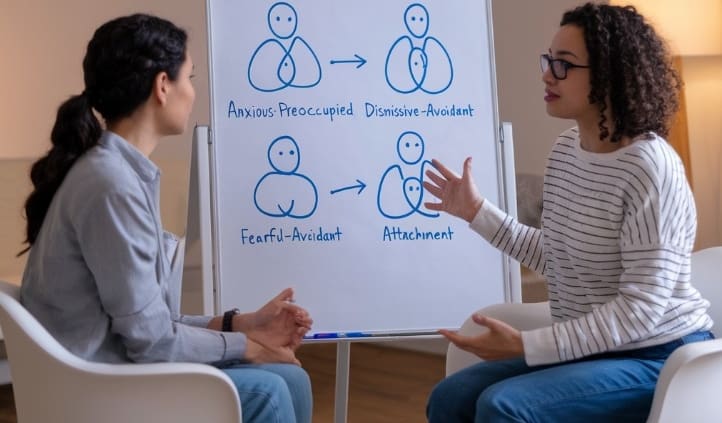Identifying Attachment Patterns & Strategies For Supporting Clients (2HR)
Identifying Attachment Patterns & Strategies For Supporting Clients (2HR)
This course equips therapists with practical tools to recognize and address attachment patterns in their clients. Grounded in attachment theory, we will examine the four primary attachment styles—secure, anxious, avoidant, and disorganized—and how these patterns manifest in relationships, behaviors, and emotional regulation.
Participants will learn to identify attachment-related dynamics through client history, verbal cues, and relational behaviors in therapy. The session will emphasize the developmental roots of attachment styles and their influence on mental health, self-esteem, and interpersonal relationships.
The course also explores evidence-based strategies to support clients in building healthier attachment behaviors. These include fostering secure therapeutic relationships, using mindfulness and emotion regulation techniques, and implementing interventions tailored to each attachment style. Case studies will provide hands-on experience in applying these concepts to diverse clinical scenarios as time permits.
Whether you are working with individuals, couples, or families, this course offers insights to help clients deepen their self-awareness, improve relational patterns, and enhance emotional well-being. By understanding attachment as a core component of human connection, therapists will leave feeling better equipped to support their clients in creating lasting, meaningful change.
Course Objectives
- Understand Attachment Theory
Explore the foundational principles of attachment theory, including the four primary attachment styles—secure, anxious, avoidant, and disorganized—and their developmental origins. - Identify Attachment Patterns in Clients
Develop the ability to assess and recognize attachment-related behaviors, relational dynamics, and emotional regulation patterns in diverse clinical settings. - Examine the Impact of Attachment on Mental Health
Analyze how attachment styles influence clients’ self-esteem, interpersonal relationships, and overall emotional well-being.
Apply Tailored Therapeutic InterventionsLearn and implement at least two evidence-based strategies, such as fostering secure therapeutic relationships, emotion regulation techniques, and interventions specific to each attachment style.
Course Instructor: Samantha Silverberg, Ph.D., L.P.C.



